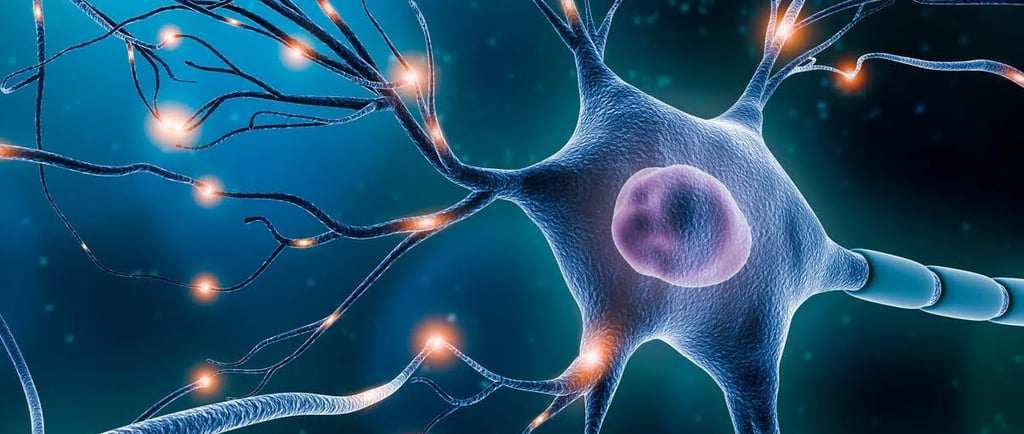Why Medications Don’t Heal Concussions: Understanding the Role of Pharmacotherapy in Symptom Management
Learn why medications don’t actually heal concussions and how pharmacotherapy is used to manage symptoms—not the root cause. This Kansas City-focused blog explains the limitations of drug treatments for TBI and highlights the importance of a comprehensive recovery plan beyond prescriptions.
Lance Stevenson
8/17/20252 min read


Why Medications Don’t Heal Concussions: Understanding the Role of Pharmacotherapy in Symptom Management
When concussion symptoms linger, it’s natural to look for a quick fix — and many patients are prescribed medications to help manage dizziness, headaches, or mood swings. But here’s the truth: there is no FDA-approved medication that actually heals the brain or improves neurological outcomes after a concussion.
At Lance Stevenson, DC, we see patients from Kansas City, Liberty, Overland Park, Raytown, and Blue Springs who’ve tried multiple medications with little to no long-term improvement. That’s because pharmacotherapy after concussion is symptom-centered, not curative.
Let’s break it down.
💊 What Medications Can (and Can’t) Do
Medications used after a concussion are typically aimed at managing specific symptoms, such as:
Headaches or migraines (e.g., NSAIDs, triptans)
Dizziness (e.g., meclizine)
Anxiety or depression (e.g., SSRIs)
Insomnia (e.g., melatonin, trazodone)
These drugs may provide temporary relief, but they don’t address the underlying neurophysiological dysfunction caused by the injury — like vestibular disruption, oculomotor dysfunction, autonomic dysregulation, or cervical spine involvement.
That’s why medications often mask symptoms instead of resolving the root cause.
❌ The Danger of Over-Relying on Meds
When patients are told medications are the only option, it can lead to:
Prolonged use of drugs with side effects
Missed opportunities for active rehab
Frustration when symptoms return as meds wear off
A false belief that recovery is out of their control
This contributes to the nocebo effect, where negative expectations and passive care approaches delay healing.
🧠 No Approved Neuroprotective Treatment (Yet)
Despite ongoing research, there are no FDA-approved neuroprotective treatments that improve neurological outcomes after concussion. This highlights the importance of functional, systems-based rehab to drive recovery — especially in patients with persistent post-concussion symptoms (PPCS).
🛠️ Active Rehab Gets to the Root of the Problem
At our Kansas City concussion clinic, we focus on evaluating and treating the specific systems that are disrupted after a concussion, including:
Vestibular system (balance and motion sensitivity)
Oculomotor system (visual tracking, convergence, saccades)
Cervical spine (joint dysfunction, proprioception)
Autonomic regulation (heart rate, breathing, blood flow)
We treat patients from North Kansas City, Leawood, Shawnee, and Parkville who have been stuck in the medication cycle — and help them finally move forward with targeted, active care.
📞 Call 816-226-7476 to schedule a full concussion evaluation.
To learn more about comprehensive concussion treatment options, check out the resources available at Complete Concussions.
Been in an Accident? Start Here.
Call us today for a free consultation or with any questions.
Expert Personal Injury Care
Whiplash Chiropractor in Kansas City
Lance@ChiroKC.com
816-226-7476
© 2025 Lance Stevenson, DC, LLC. All rights reserved.
Disclaimer: The content provided on this page is for informational and educational purposes only and is not intended as a substitute for professional medical, legal, or insurance advice. While every effort is made to provide accurate and up-to-date information, it should not be relied upon as the sole basis for decisions regarding your health, legal matters, or insurance claims. Please consult with your healthcare provider, attorney, insurance company, or other relevant professionals for personalized guidance tailored to your specific situation.
1010 Carondelet Dr., Suite 416
Kansas City, MO 64114